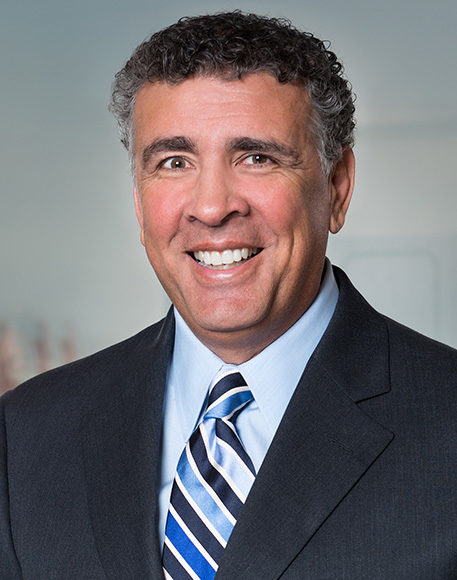What Kinds of Background Checks Are Required by Nursing Homes?
 Since elderly individuals who live in nursing homes depend on the staff to take care of them, it is the nursing homes’ duty to make sure that they hire staff that can be trusted. Many nursing homes require background checks before hiring individuals to ensure that their staff has never been accused of abusing or committing crimes.
Since elderly individuals who live in nursing homes depend on the staff to take care of them, it is the nursing homes’ duty to make sure that they hire staff that can be trusted. Many nursing homes require background checks before hiring individuals to ensure that their staff has never been accused of abusing or committing crimes.
If nursing homes choose to forgo a background check, they could put their residents at risk of being abused and taken advantage of. In fact, by hiring one single person without conducting a background check, the nursing home can cause a dangerous situation to arise.
Is a federal background check required to work at a nursing home facility?
According to Federal Code 42 CFR § 483.12, a resident in a nursing home facility “has the right to be free from abuse, neglect, misappropriation of resident property, and exploitation.” The U.S. Department of Health and Human Services Office of Inspector General (OIG) also states that those who depend on long-term care services have the right to “protection from abuse, neglect, and theft by preventing prospective employees with disqualifying offenses from being employed by these care providers and facilities.” As a result, the National Background Check Program was implemented in 2010 to ensure that states have the help they need to create and improve their systems for requiring and conducting background checks on both the state and federal level.
According to the federal law, nursing homes and other long-term care facilities are not supposed to hire anyone who has committed a crime against a patient, such as violence, mistreatment, or neglect. However, a report released by the OIG points out the fact that the National Background Check Program is simply a “voluntary grant program,” which was implemented to help State agencies that receive this grant with creating and improving their methods to carry out state and federal background checks.
Therefore, the federal government does not require federal background checks; they just try to help states who may be having trouble using background checks to make sure they hire staff members who are considered safe and free of certain crimes. This means that there is no federal background check requirement to work at a nursing home facility. Instead, it is either a state requirement or the nursing home’s own decision to conduct a background check before hiring an applicant. Unfortunately, as a result of this, around 92 percent of nursing homes hired at least one employee with a criminal conviction.
Which states do and do not require background checks for nursing home applicants in the United States?
There are currently 10 states in the United States that require a state background check as well as an FBI criminal background check. These states include:
- Arkansas
- Arizona
- Delaware
- Idaho
- Michigan
- Mississippi
- New Mexico
- Nevada
- New York
- Tennessee
There are eight states that do not require any type of background check to work at a nursing home, which are:
- Alabama
- Colorado
- Connecticut
- Hawaii
- Montana
- North Dakota
- South Dakota
- Wyoming
The other 33 states not mentioned in these lists have at minimum a state background check that all nursing home applicants must complete and pass.
If a nursing home conducts a background check, what exactly are they looking for?
The OIG explains that if a nursing home conducts a thorough background check, they will look for various parts of the applicant’s background, such as:
- Where the individual has lived
- Criminal history or records from each state they have lived
- Fingerprint checks conducted by the FBI
- Any information in their current state that could disqualify them for the position
When a nursing home facility conducts a background check, they are looking for theft, fraud, assault, domestic violence, homicide, drug use, sexual offenses, and more. Some nursing home facilities can choose to conduct a continuous monitoring background check, which is a type of background check where the employer continues to monitor the employee for crimes even after they are hired. However, in order to continuously monitor the employee’s criminal record going forward, the employer will need to set this up with their state’s law enforcement agency.
Why do federal and state laws on background checks need to be stronger for nursing home residents?
Current laws and regulations are not working very well to ensure criminals stay out of nursing homes. Federal and state laws should be stronger because many nursing home facilities only do the bare minimum when it comes to hiring workers. In the states that do not require background checks at all, the nursing homes can either choose to conduct their own background checks, or they can simply check a database that does not tell them much about the employee they are considering hiring. Most of the time, they will choose to not go through the trouble of conducting a background check.
When it comes to the 33 states that require at least a state background check, it can be difficult for the nursing homes to see whether an applicant was involved in any crimes in another state. Unfortunately, this makes it very easy for those who have been convicted of a crime in one state to move to another state and get a new job at a nursing home.
Additionally, since many nursing homes can choose whether they want to conduct a background check or not, they may decide to only check for certain crimes, such as fraud, theft, or violent crimes. While it is great that they are checking for these crimes, those who have committed other types of crimes, such as sexual abuse or drug offenses, may be able to slide by and secure employment at the nursing home.
If you or your elderly family member has been abused by a nursing home employee, the nursing home abuse lawyers at Garcia & Coman are here to help. We have experience handling cases involving abuse, neglect, financial exploitation, and more. Therefore, if you are ready to begin discussing with our team, please call our office or submit our contact form today. We have office locations in Los Angeles, Phoenix, Long Beach, New Orleans, and Louisville.
Nursing Homes
- Park Avenue Healthcare & Wellness Center Nursing Home
- Ellison John Transitional Care Center
- Kei-Ai Los Angeles Healthcare Center

Stephen M. Garcia represents victims of elder and nursing home abuse and is known as one of the leading civil litigators in the country. He is Senior Partner at Garcia & Coman, where the firm’s practice is focused on elder abuse, nursing home abuse, and wrongful death of the elderly.
Find out more about Stephen M. Garcia

